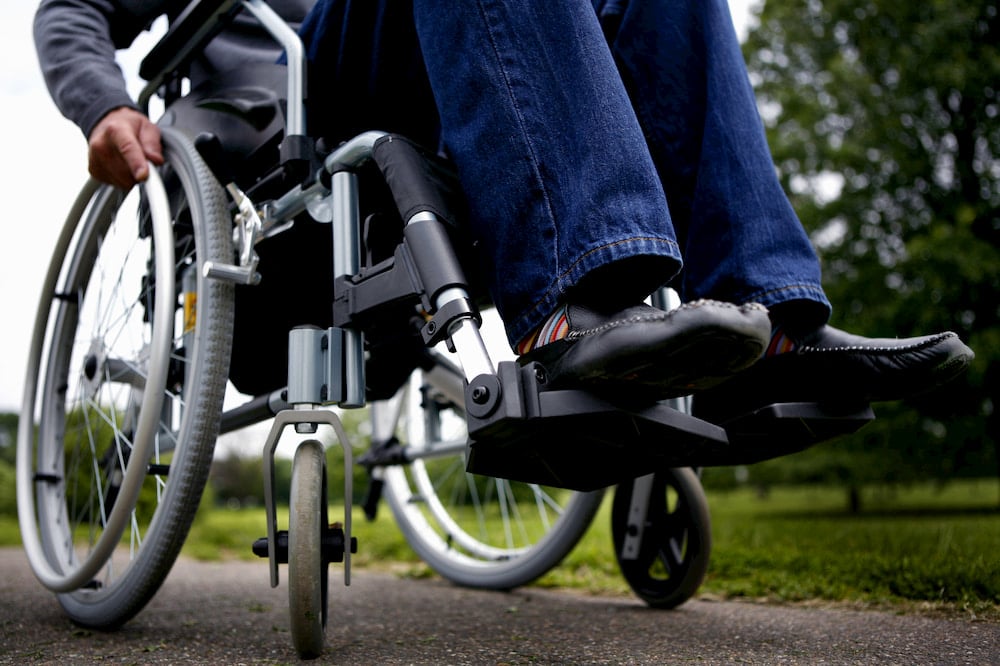Disability advocacy groups across the Territory joined forces today to demand swift action on violence against people with disabilities, as well as more accessible health services, crisis centres, transport, city infrastructure and housing.
On the 2020 UN International Day of People with Disability (IDPWD), 3 December, the ACT Council of Social Service (ACTCOSS), Women with Disabilities ACT (WWDACT) and People with Disabilities ACT Inc (PWDACT) released a joint statement highlighting issues for the Federal and ACT governments to urgently prioritise.
Speaking on behalf of the peak body run by people with disabilities for people with disabilities, PWDACT office manager Robert Altamore called for more Universal Design housing in the ACT.
Universal Design housing is intended to be practical and flexible for people with different abilities over their lifetime, without requiring major renovations or adaptations.
“This is vital as the city’s population ages,” he said.
“We need a dedicated access committee on transport and the built environment and concrete action through regulation and incentives to increase the availability of universal design housing.”
In the new Parliamentary Agreement, ACT Labor and Greens committed to amend building legislation by setting a proportion of new residential homes in the ACT that must be built to meet Universal Design standards.
The Agreement also indicated an intention to establish a dedicated Access Committee for people with disabilities to guide government on issues relating to the proposed design of active travel, urban planning and transport.
Changes to transport proposed in the Agreement were on-demand and “flexibus” services to make travel easier for Canberrans with mobility issues, and to enable night buses to drop residents closer to home to mitigate safety concerns.
Mr Altamore also drew attention to issues with the implementation of the National Disability Insurance Scheme (NDIS).
“Government needs to abandon the flawed NDIS independent assessment process, address issues with pricing and delays in receiving assistance.”
The need for people with disabilities to be included in the design and management of services and policies that affect their communities was emphasised by Mr Altamore and WWDACT CEO Kat Reed, who advocates for female and gender-diverse people with disabilities.
Women with disabilities in the ACT experience violence at approximately twice the rate of non-disabled women, and Ms Reed said they must be able to access appropriate services, protection and support.
“Priorities include improving accessibility of crisis shelters in the ACT, full implementation of the Disability Justice Strategy including a gendered approach to justice issues, strengthening the role of the Family Safety Hub, continuing funding for Official Visitors, and streamlining complaints processes at the ACT Human Rights Commission,” she said.
Ms Reed also drew attention to the need for a Disability Health Strategy – something she said COVID-19 had reinforced.
ACTCOSS policy manager Craig Wallace said today’s event should be a “clarion call to banish complacency” and all governments needed to “resuscitate the lacklustre National Disability Strategy” (NDS).
“The evidence from the Royal Commission into Violence, Abuse, Neglect and Exploitation of People with Disability, and our experiences through bushfires and COVID-19, expose shortcomings in planning and implementation of policy,” he said.
“It also highlights the paucity of critical investments in services and infrastructure aimed at access and inclusion.”
In the new Parliamentary Agreement, the ACT Government said it will “strive to ensure Canberra continues to be an inclusive community where all people feel they belong, are valued and supported”.
Mr Wallace said the Territory needed to push ahead to deliver promises and aspirations made in the Agreement.
For more news:



